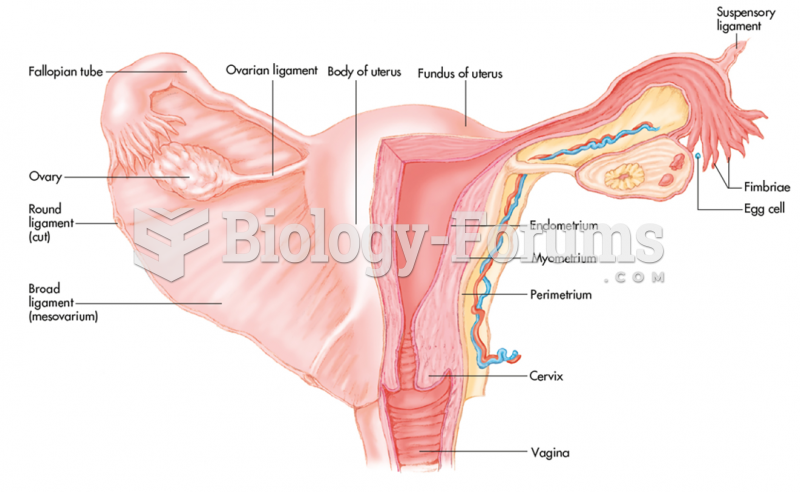|
|
|
There are more sensory neurons in the tongue than in any other part of the body.
Adolescents often feel clumsy during puberty because during this time of development, their hands and feet grow faster than their arms and legs do. The body is therefore out of proportion. One out of five adolescents actually experiences growing pains during this period.
Asthma occurs in one in 11 children and in one in 12 adults. African Americans and Latinos have a higher risk for developing asthma than other groups.
Immunoglobulin injections may give short-term protection against, or reduce severity of certain diseases. They help people who have an inherited problem making their own antibodies, or those who are having certain types of cancer treatments.
Prostaglandins were first isolated from human semen in Sweden in the 1930s. They were so named because the researcher thought that they came from the prostate gland. In fact, prostaglandins exist and are synthesized in almost every cell of the body.
 A demand delivery system uses a fuel-pressure regulator attached to the fuel pump assembly inside ...
A demand delivery system uses a fuel-pressure regulator attached to the fuel pump assembly inside ...
 A “reduced power” warning light indicates a fault with the electronic throttle control system on ...
A “reduced power” warning light indicates a fault with the electronic throttle control system on ...





